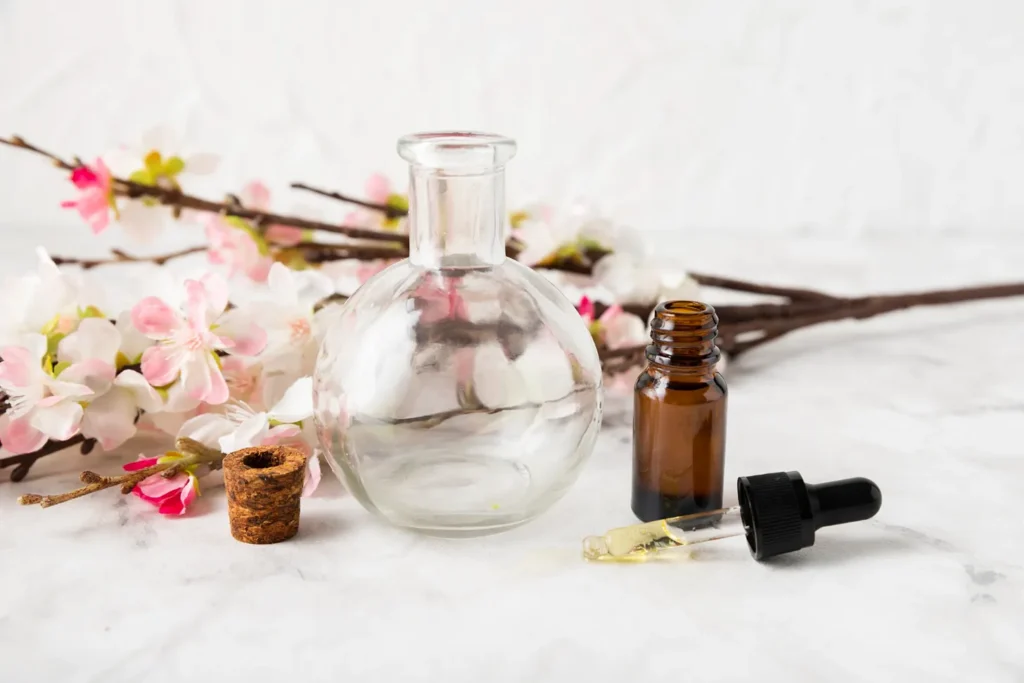
Exploring the Balance Between Natural and Synthetic Ingredients in Modern Fragrances
Hey everyone, I want to talk to you about something which I feel like is occasionally a divisive topic in the fragrance community: it’s artificial versus synthetics. Are they good or bad? Which one’s better? Stay tuned.
Defining Terms: Naturals vs. Synthetics

To start off, I want to define my terms. When I say “natural,” what I’m referring to are fragrance molecules or oils that come from natural sources—either they were distilled from a plant or animal source, although that’s increasingly rare—or something like that. A synthetic is going to obviously be something that was synthesized, something created in a lab. Those are the distinctions I make.
Can You Identify Naturals?
The answer to that question is, sometimes. I think I’ve heard, I follow different perfumers, I’ve read some books—I’m by no means an expert—but my understanding is that when you’re talking about naturals, and you’re talking about absolutes, you are bringing in a lot of different fragrant compounds into the fragrance. So, I think it’s Bulgarian Rose or Turkish Rose. Some roses have something like 66 different aroma compounds in the absolute.
One of those is apparently like asparagus. So, they’re not all pleasant; some of them are, some of them are sulfuric. When you use naturals, you’re bringing them all to the party. You don’t separate them out. Since you’re bringing all of those things in, it’s often going to impact the smell.
The Vintage Tinge and Naturals
I was told kind of a shortcut—I don’t know if this is fully universally true—but I was told that if you can kind of get that vintage sort of tinge from a fragrance, it’s an indication of a lot of naturals.
The Impact of Naturals on Modern Fragrances
I don’t know if that’s true or not, maybe someone could tell me in the comments if that’s actually true, but the vintage perfumes thing—because a lot of the same notes, I mean, patchouli has been used forever. But there are lots of patchouli fragrances that don’t smell this way. That was a way that I was told to shortcut if something has that kind of classic tinge—it might be an indication of some naturals in it.
Fragrances with High Naturals and Synthetics
I want to talk about and give you some examples of good fragrances that are both high in naturals and high-end synthetics.
My Journey into Fragrances
I’m going to relay this, I don’t know if this is true again, so I should start off by saying this: part of the reason why I started this channel was because I started to get obsessed with fragrances—as I periodically get obsessed with different things. Rather than bludgeoning my poor wife with endless amounts of knowledge, I decided that I would create an outlet and force it on anyone who’d listen to me.
My Thoughts on Synthetics and Naturals in Fragrance
I’m trying to make them just me regurgitating the things that I’m learning and basically sharing them as I go along. If that’s interesting to you, let me know. If not, I guess let me know. But that’s the purpose of this channel. So that’s the reason why I want to write this article. I keep having these thoughts, I think it’s interesting, and I want to talk about them.
Examples of Fragrances with High Synthetics
I have a couple of examples of fragrances that are high in synthetics. I think all of these smell good, by the way, but I didn’t bring examples of bad synthetic fragrances or bad naturals. You could probably find those, though. I think it’s very subjective. The bad synthetics are probably going to be very cheap. Sometimes, the cheap fragrances smell great, but usually, if they’re not spending much money, I usually take that as a sign of lower quality.
Fragrance Example 1: Paris Corners Emir Sidra Essence
Okay, I’m actually going to explain you four fragrances. I was thinking about this: I’ve got one fragrance that I believe is high in naturals, I’ve got two fragrances that are synthetic, but I think smell great, and I’ve got one fragrance that I think has quite a bit of both. So, I’m going to talk about them all a little bit because I think they all deserve a little bit of discussion.
Fragrance Example 2: Armoff Club de Nuit Intense Man Limited Edition
I want to start off, though, with one of my favorites, and that is Paris Corners Emir Sidra Essence. I like this one a little bit more than Sadrat Blase just because I really like the citruses in this. That being said, this fragrance is a clone.
Fragrance Example 3: Armaf Club de Nuit Intense Man Limited Edition
I think this smells great and doesn’t smell synthetic to me. It doesn’t smell fake. It smells like citruses and moss, kind of like Aventis—although, and I mean, not to go down this rabbit hole, but I’ve got a sampler set from Creed, and I think this both smells and performs better than the current formulation of Aventis. So, maybe there are a lot of synthetics in here, I’m sure there are.
The Balance of Naturals and Synthetics
This being a vetiver bomb, and a lot of resins and smokes, again, I’m sure there are synthetics in all of these fragrances, but this is a heavy dose of vetiver. Because it’s very vetiver focused, I think this is going to be, in terms of most fragrances, it’s going to be higher in concentration of natural oils. I think this is a good opportunity to talk about ratios.
The Ratio of Aroma Chemicals to Naturals
I’ve been told from different perfumers and things that I’ve read, the general opinion—and if you’ve heard otherwise, please tell me below—I’ve heard a good ratio is about 80 aroma chemicals to 20 naturals. I think that’s probably on the high end.
I think naturals get used a lot less because I think at this point we can do a lot with aroma chemicals to reconstruct the naturals in a way that you don’t have to include the sulfur, you don’t have to include the asparagus in that rose thing. You can just create the synthetic rose that, to you, when you smell it, you go, “Oh, that’s a rose,” and it may actually even come across more natural-smelling than the natural rose absolute.
The Balance of Naturals and Synthetics
And that’s kind of been my experience. That’s why I don’t have a problem with the synthetics because the whole point of fragrance is you’re trying to evoke certain smells. If the natural version of something doesn’t make you think of that, then it’s not doing as good of a job.
